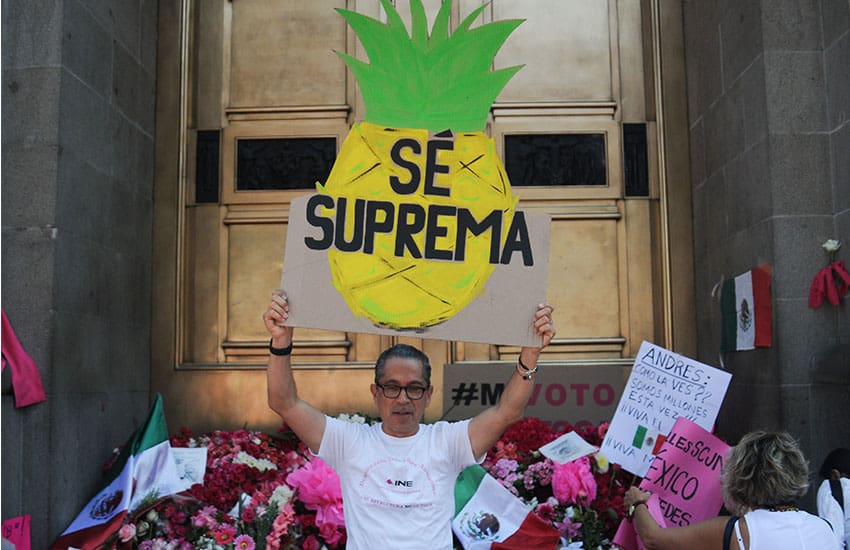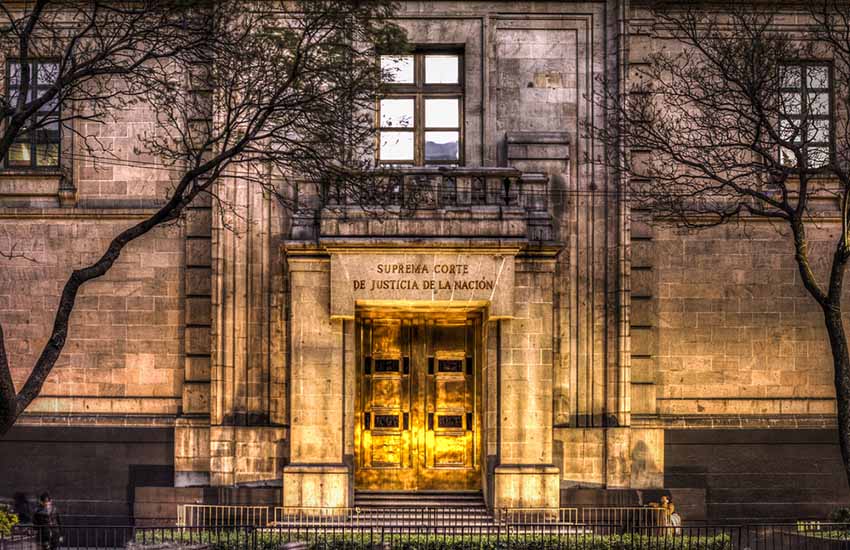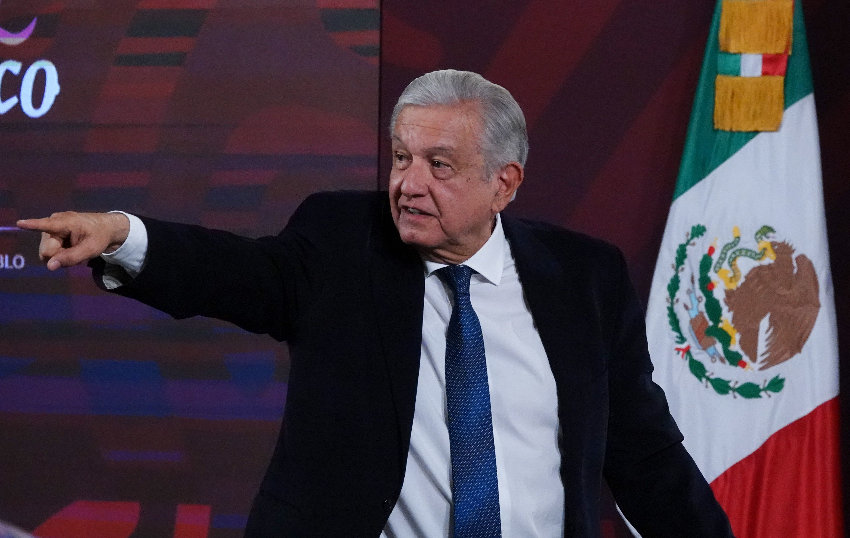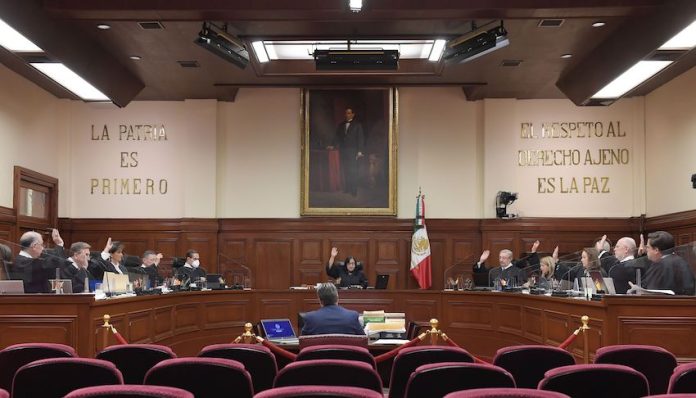The Supreme Court (SCJN) on Monday struck down part of a controversial electoral reform package citing violations of legislative procedure by federal Congress.
Nine of 11 justices voted to invalidate two of President López Obrador’s so-called “Plan B” electoral reform laws, both of which were approved by Congress in December 2022.

Changes to the General Law on Social Communication and the General Law on Administrative Responsibilities were abrogated. Reforms to those laws sought to limit the responsibilities of the National Electoral Institute (INE) as well as its capacity to regulate and sanction political communication.
A second part of the “Plan B” reform package, which slashes funding for the INE, among other measures, is not affected by Monday’s ruling, but its application was suspended by the SCJN in late March. The Supreme Court will consider repealing modifications to laws in that second part of the package — approved in February — at a later date.
The SCJN said in a statement that the first part of the reform package was invalidated due to “violations of legislative procedure, particularly the principle of informed and democratic deliberation, as well as the rights … [of] parliamentary minorities.”
The court determined that the Congress — within which the ruling Morena party and its allies have a majority — violated two articles of Mexico’s constitution that govern legislative conduct. Its decision came in response to a challenge filed by opposition political parties as well as individual lawmakers.

The SCJN noted that the legislation was not published in the parliamentary gazette in a timely manner and that lawmakers were consequently uninformed about the proposed modifications, which were approved in a lower house session last December that immediately followed the rejection of a more ambitious constitutional reform to the electoral system.
Justice Alberto Pérez Dayán, who proposed the invalidation of the modifications that passed Congress late last year, said he was certain that “no member of the Chamber of Deputies had the real possibility to know the content of the laws that were approved.”
Justice Luis María Aguilar asserted that a “perversion of democratic rules” had occurred due to the myriad “vices and errors” committed by lawmakers.
“Endorsing a legislative procedure with these features would be equivalent to accepting that the parliamentary majority … is above constitutional rules, which I consider unacceptable,” he said.

Justice Arturo Zaldívar, considered an ally of the president, said that all parliamentary groups were not given the opportunity to debate the proposed legislation in “conditions of equality and freedom.”
The two justices who voted against invalidating modifications to the two laws were nominated by López Obrador, who put forward the “Plan B” package after his more ambitious electoral overhaul was blocked.
López Obrador’s office asserted in a statement on Sunday that the SCJN would be effectively “replacing the Congress” if it ruled against the legislative procedure it followed to approve the electoral reform laws.
At his morning press conference on Tuesday, the president condemned the court for its decision and asserted that “Plan C is coming.”
“The judicial power is rotten,” he said before accusing the justices who voted in favor of invalidating the reforms of acting in a partisan manner.
“The executive power is elected by the people — they elected me. It’s the same thing with the legislative power — the deputies are elected, the senators are elected. But in an act of arrogance and authoritarianism, the justices dared to cancel [part of the electoral reform] law,” said López Obrador, a fierce and frequent critic of the judicial branch of government.
“They’re at the service of a greedy minority that dedicated themselves to looting the country,” he added.
The successful execution of the president’s proposed Plan C requires the ruling Morena party and its allies to win two-thirds majorities in both houses of Congress at the national elections on June 2, 2024, a supermajority.
A supermajority in the Chamber of Deputies and Senate would allow Morena to get constitutional changes through Congress, such as the original electoral reform bill proposed by the president.
López Obrador was highly critical of the INE while it was under the 2014–23 leadership of Lorenzo Córdova and accused its predecessor, the Federal Electoral Institute, of facilitating fraud that he claims cost him the 2006 and 2012 presidential elections.
He has touted the multibillion-peso savings that the “Plan B” reform package would generate and rejected claims that it places the staging of free and fair elections at risk.
However, approval of the second part of the package triggered large protests across Mexico in late February, with participants ordering authorities to keep their hands off the INE, considered a key pillar of the country’s democracy.
With reports from El País, Reforma and El Universal
